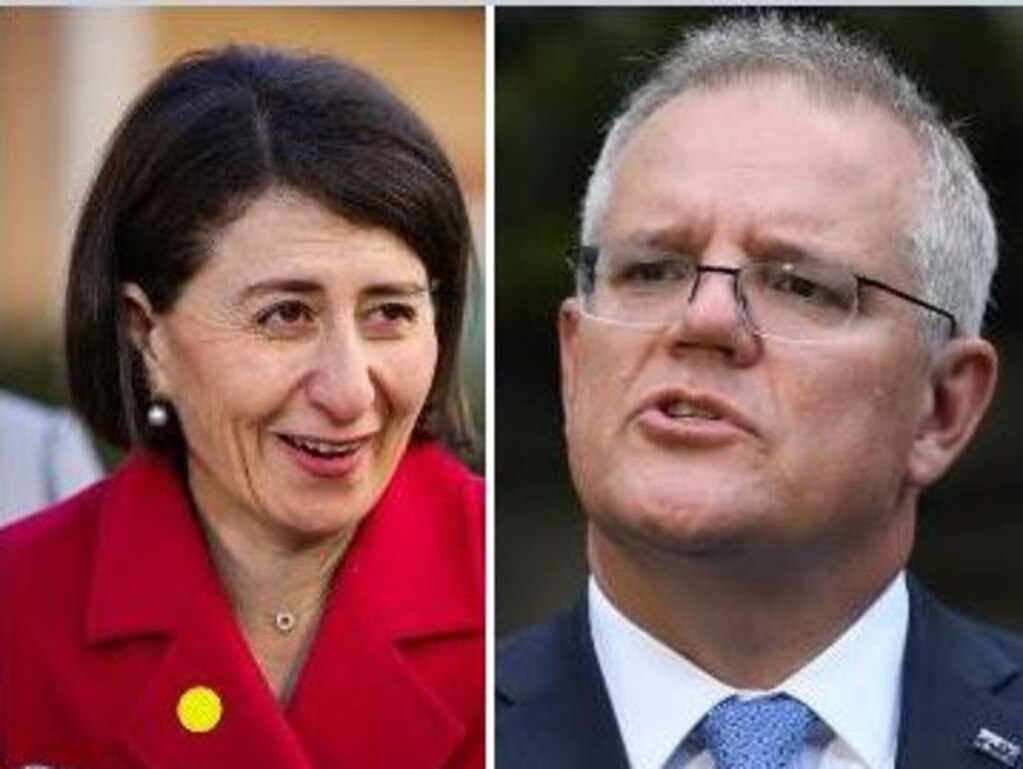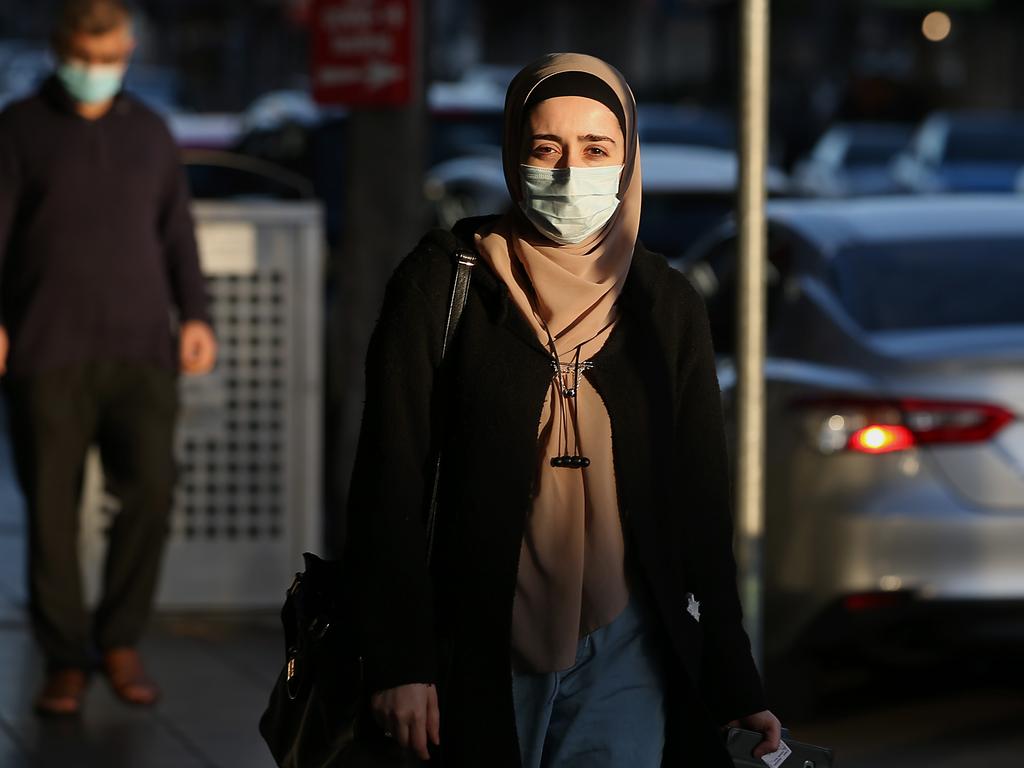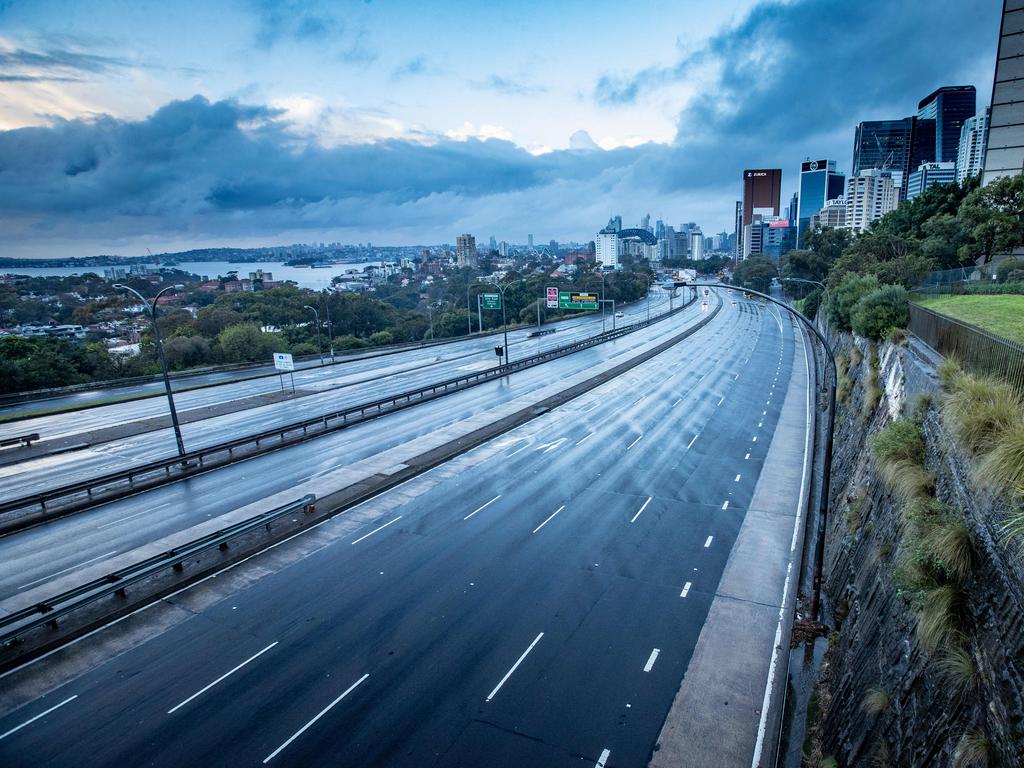Gruelling challenge for doctors on the virus frontline

Every night I would go to bed concerned that I may have been unknowingly exposed to the virus and afraid I would transmit it to my wife. I would sleep on a figurative knife’s edge – and on the literal edge – of my bed, keeping my distance from my wife. I would wake early each day, hurry to check that the results from the previous day were negative before I could breathe, make a coffee and enjoy it with her.
My most recent positive Covid case was a seven-year-old who had acquired the Delta strain. Both parents unfortunately also tested positive. We now know that the chances of not transmitting the Delta variant to household contact is highly unlikely, making this lockdown and period in Sydney of utmost importance.
In June last year I felt I wasn’t coping and able to be my usual self. Unfortunately, my GP was overseas at the time. I had to endure this burnout, this ‘Covid fatigue’ on my own and I immersed myself in my own form of diversionary therapy by reading and obsessing about motorhomes. It became part of every conversation in my time off. In some way I felt so trapped in the repetition of testing, this outlet became an escape for my mind to journey beyond home and clinic.
After three months of research, I commissioned a Queensland company to build my motorhome according to my specifications.
In November, I was asked by a patient, “aren’t you afraid of catching this virus, doc?”
I responded, “I wouldn’t mind getting this virus so I can spend two weeks in isolation.”
It was this response which caused me to reflect and acknowledge I wasn’t coping. I didn’t need a virus to take time off, I needed to
give myself a break. And so my wife and I went to the Hunter Valley for a week.
I reaffirmed that I was going to look after myself and so when I returned to work, I also started planning for my end of year holiday. Then the Northern Beaches cluster happened. And instead of going away, my workload tripled.
Following this, I went into a deep depression. I finally sought help by getting someone to replace me to lessen my workload and planned to retire at the end of March when my motorhome was scheduled to be ready. Then in March we were given the chance to start vaccinations. This brought me a sense of relief and joy, because I knew vaccination is the light out of the pandemic tunnel.
Since June 16, when the first case in the new outbreak was confirmed, it has been hell. A lot of work, fear and organisation. Without a doubt my receptionists are busier than me. While I am vaccinating 60 to 70 patients per day, they are fielding 100 to 150 calls per day for patients demanding the Pfizer vaccine. To date, we have had four positive cases in my testing clinic and one family recently visited my centre at night who later tested positive. We have now closed the centre for deep cleaning and to ensure all staff get their results prior to reopening.
I’ve decided I’ll retire when I feel its right to do so. Why am I still working? Because now is not the time to stop, it is the wrong thing to do and we need everyone, everywhere, to do their bit.
In my medical centre, I work alongside my eldest son, who is a registered nurse; my daughter-in-law, who is a receptionist; my daughter, who stepped in to assist us as a practice manager (who is a civil engineer specialising in project management); and my youngest daughter, who usually works at Bondi, has also stepped in to help.
While I am lucky I get to see them, I worry about them because we are working in a high-risk environment. The pandemic has impacted our lives like any other family. We usually get together, all my five children, their spouses and my five grandchildren, each Friday. We haven’t done this since June, although we FaceTime regularly. As a family, while we remain close, our bonds have been tested by loss, grief and impacts on mental health. We have had to put effort into balancing our individual health and wellbeing with that as a family unit in line with our societal responsibilities.
Since the lockdown, I have undergone six swabs so I don’t pose any risk to anyone. Residents in southwestern Sydney, in my local area, have been criticised for not responding quickly. Once the state government announced the police operation in southwest Sydney, I feel we needed a game-changer to impact behaviour, but the police operation on its own won’t stop this virus. This is not a time to blame or shame.
Just like I have struggled myself, many others have. But my family and I have many privileges that other families are not afforded. We have safe homes, while others do not. We have security, while others face eviction or homelessness. We can work, while others can’t. We need a health policy so people don’t have to decide between essential work or staying at home, because for some that is also life and death.
The roadmap out of this seems simple, but life is not.
Jamal Rifi is a Lebanese-born Australian with a medical practice in Sydney. He is a prominent member of the Lebanese Muslim community and was awarded The Australian newspaper’s Australian of the Year in 2015.







I’ve worked as a GP for over 30 years. When the pandemic landed in Australia last year, I started a drive-through Covid-19 assessment and testing clinic. For several months on end, I worked seven days a week.